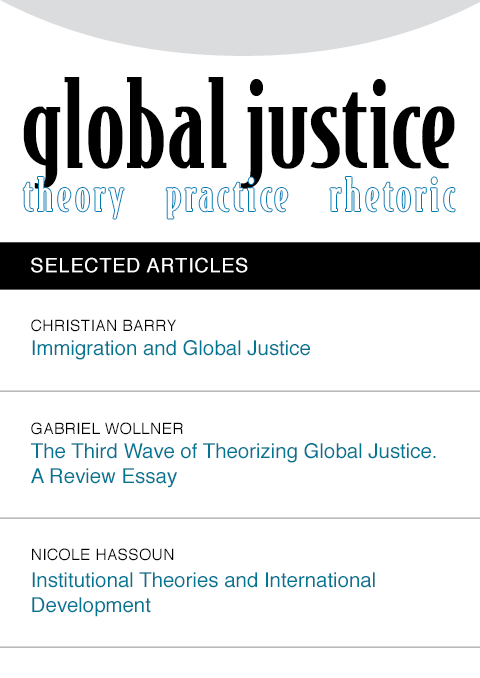Collective Self-Determination and Externalized Border Control
DOI:
https://doi.org/10.21248/gjn.15.01.325Abstract
According to a common argument in defense of border control, legitimate states have a right to exclude on grounds of collective self-determination. I argue that the value of self-determination can also serve as a basis for criticizing states’ immigration policies. Specifically, I contend that the externalization policies of states in the Global North often undermine the self-determination of peoples in the Global South. I identify five pathways by which externalization policies undermine self-determination. I conclude by tentatively suggesting some potential implications of this argument for broader debates about the governance of migration.

 Global Justice: Theory Practice Rhetoric (TPR) is a peer-reviewed, open-access e-journal which publishes original research in international political theory, with special emphasis on global justice. We are particularly interested in bridging the gap between political theory, empirical research, and the study of political practices and communication.
Global Justice: Theory Practice Rhetoric (TPR) is a peer-reviewed, open-access e-journal which publishes original research in international political theory, with special emphasis on global justice. We are particularly interested in bridging the gap between political theory, empirical research, and the study of political practices and communication. 


